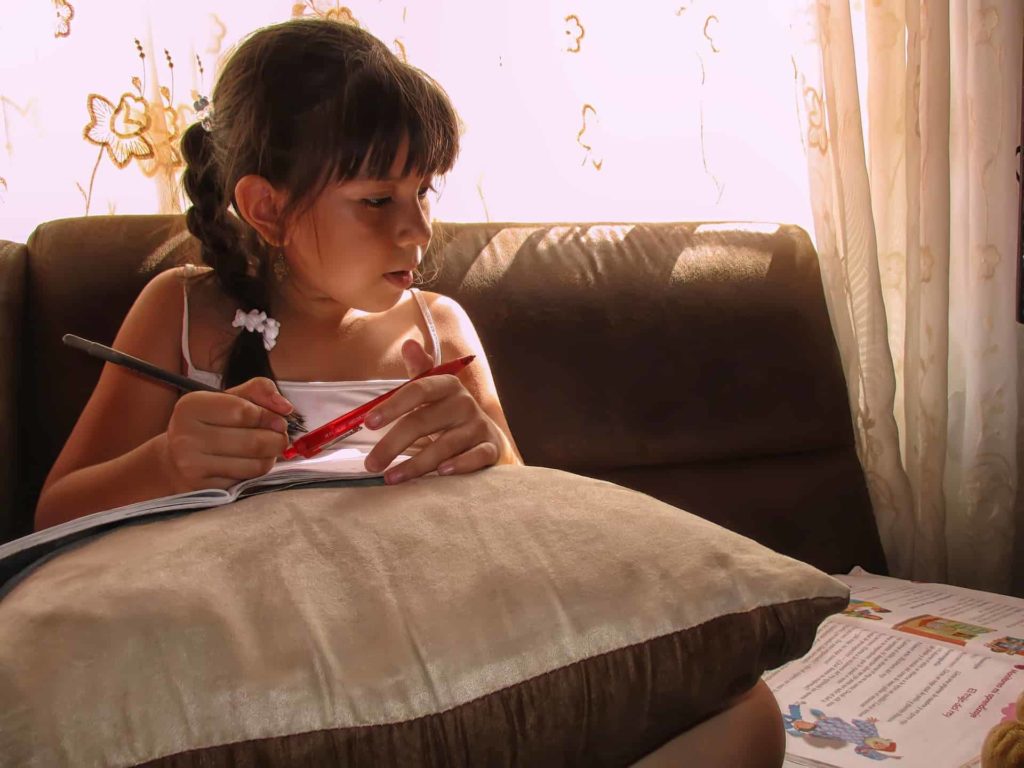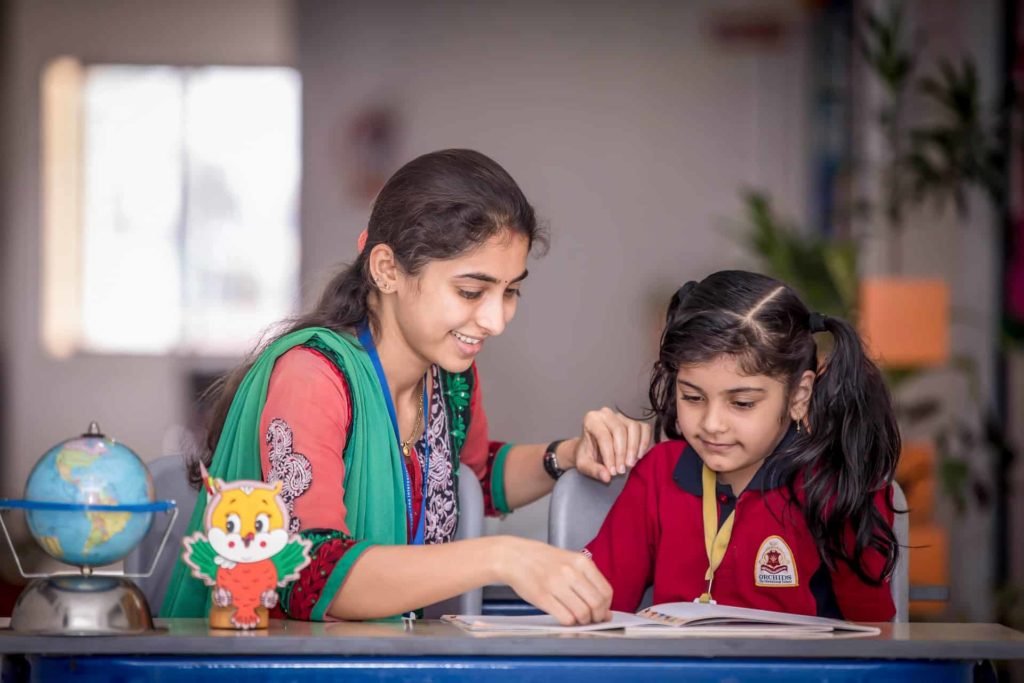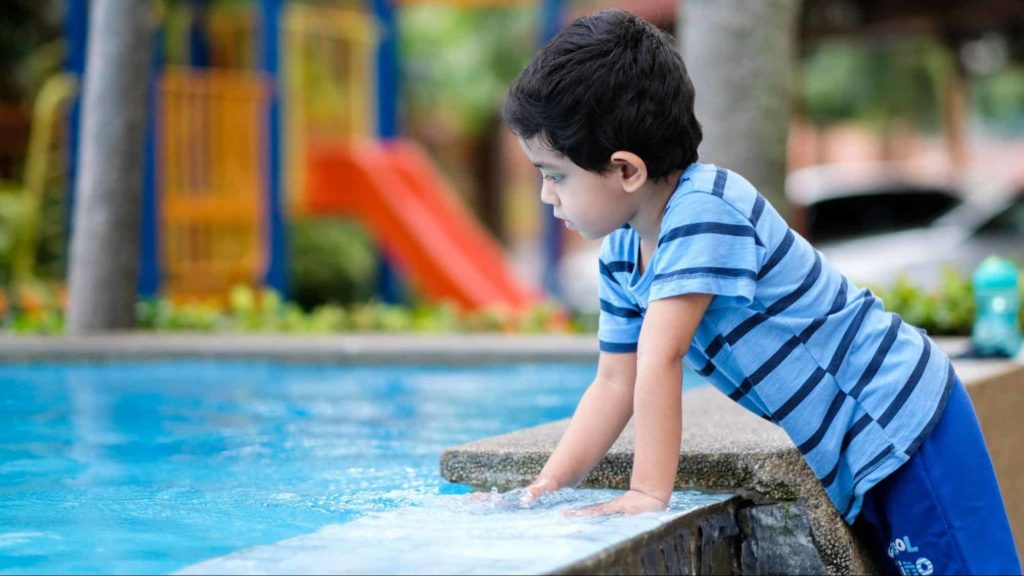Contents
- Reasons for Homeschooling in Malaysia:
- Methods of Homeschooling in Malaysia:
- Challenges of Homeschooling in Malaysia:
- Disadvantages of Homeschooling in Malaysia : The Pros and Cons of Homeschooling in Malaysia 2024
- Disadvantages of Homeschooling in Malaysia
- Lack of Socialization opportunities
- Limited access to extracurricular activities
- Increased Responsibility for Parents
- Potential for academic gaps or lack of structure
- Limited resources and support system
- Difficulty in meeting curriculum standards
- Potential for isolation and loneliness
- Lack of diverse perspectives and experiences
- Challenges in transitioning to traditional schooling
- Increased financial burden for parents
- Limited opportunities for specialised instruction
- Potential for burnout and stress for parents
- Difficulty in maintaining motivation and discipline
- Potential for reduced access to technology and resources
- Challenges in obtaining recognized qualifications or certifications
- The Pros and Cons of Homeschooling in Malaysia
- 1. Homeschooling centers are available.
- 2. It’s a cost-effective alternative.
- 3. The homeschool teachers in Malaysia are certified.
- 4. The IGCSE Syllabus is followed when homeschooling in Malaysia.
- 5. It has a one-on-one learning environment.
- 6. It’s flexible and it gives better learning opportunities.
- 7. Students learn at their own pace.
- 8. It’s safer for the students.
- 9. It’s hands-on and it encourages extracurricular activities.
- 10. There’s more quality time with the family.
- Cons of Homeschooling in Malaysia
- 1. Students may not learn to be fluent in Malaysian.
- 2. There will be less social interactions.
- 3. There’s a lack of facilities.
- 4. Parents may sometimes incur extra expenses.
- 5. Parents may not be able to tutor their kids.
- 6. There’s a need for more homeschool teachers in Malaysia.
- 7. Homeschooling takes a lot of time and effort.
- Share this:
Disadvantages of Homeschooling in Malaysia : The Pros and Cons of Homeschooling in Malaysia 2024 :- Homeschooling in Malaysia is an alternative educational option for families who wish to provide their children with a different learning experience outside of traditional schooling. While not formally recognized by the government, it exists in a legal gray area where families can homeschool their children with proper documentation and procedures.
Reasons for Homeschooling in Malaysia:
- Flexibility: Homeschooling allows for a more flexible and individualized learning approach, catering to a child’s specific needs, interests, and learning pace.
- Religious or philosophical reasons: Some families choose to homeschool based on their religious beliefs or educational philosophies that may not align with traditional schools.
- Special needs: Homeschooling can provide a supportive environment for children with special needs who may require personalized attention and modifications to the curriculum.
- Dissatisfaction with traditional schools: Some families may be unhappy with the quality of education, overcrowding, or other aspects of traditional schools and opt for homeschooling as an alternative.
Methods of Homeschooling in Malaysia:
- Independent homeschooling: Families design and implement their own curriculum, with parents acting as the primary teachers.
- Online homeschooling: Families utilize online resources, platforms, and courses for their homeschooling program.
- Homeschooling co-ops: Groups of families come together to share resources, expertise, and teaching responsibilities.
- Hybrid homeschooling: Families combine homeschooling with part-time enrollment in traditional schools or classes.
- Registered homeschooling programs: Some families choose to enroll in registered homeschooling programs that provide curriculum, support, and guidance.
Challenges of Homeschooling in Malaysia:
- Lack of government recognition: Homeschooling in Malaysia is not officially recognized by the government, which can lead to challenges in areas like curriculum validation, standardized testing, and university admissions.
- Socialization: Some people worry that homeschooled children may lack opportunities for social interaction and development. However, homeschooling families can find ways to address this through co-ops, community activities, and other means.
- Financial cost: Homeschooling can require significant financial resources for curriculum materials, tutors, and other expenses.
- Legal requirements: There are certain legal requirements and procedures that homeschooling families in Malaysia need to follow, which can be complex and time-consuming.
Disadvantages of Homeschooling in Malaysia : The Pros and Cons of Homeschooling in Malaysia 2024
Homeschooling in Malaysia has gained popularity as an alternative form of education where parents take on the role of teachers.
While it offers certain advantages such as customized curriculum and flexible schedules, it is important to critically examine its potential disadvantages.
Disadvantages of Homeschooling in Malaysia
Lack of Socialization opportunities
The lack of socialization opportunities in homeschooling in Malaysia can hinder the development of essential interpersonal skills among students. Unlike traditional schooling where children interact with peers from diverse backgrounds, homeschoolers have limited chances to engage in meaningful social interactions. This restricts their ability to develop important communication and collaboration skills that are crucial for success in the future.
Additionally, socialization plays a vital role in shaping one’s personality and identity as it exposes individuals to different perspectives and cultures. Without such exposure, homeschooled students may struggle when transitioning into higher education or entering the workforce.
Moreover, socialization also helps foster empathy and understanding towards others, which is essential for building harmonious relationships within society. The lack of socialization opportunities thus remains a significant disadvantage of homeschooling in Malaysia.
Limited access to extracurricular activities
Limited access to extracurricular activities in homeschooling settings restricts opportunities for social interaction and skill development beyond academic subjects. Extracurricular activities play a crucial role in the holistic development of a child, providing them with opportunities to engage in physical, creative, and social activities.
However, homeschooling often limits access to these activities due to lack of resources or limited exposure to different interests and talents. Participating in extracurricular activities allows children to develop important skills such as teamwork, leadership, communication, and time management.
Furthermore, these activities provide avenues for children to interact with peers from diverse backgrounds and learn how to navigate social dynamics outside of their immediate family circle.
Without these opportunities, homeschooled children may miss out on valuable experiences that contribute to their personal growth and overall well-being. Therefore, it is essential for homeschooling parents in Malaysia to prioritize finding suitable extracurricular options for their children’s comprehensive development.
Increased Responsibility for Parents
Increased responsibility for parents in homeschooling settings includes taking on the role of both educator and caregiver. This requires them to juggle academic instruction, curriculum planning, and daily household tasks.
The increased workload can be overwhelming and time-consuming for parents. They have to spend significant amounts of time researching, preparing lessons, grading assignments, and monitoring their child’s progress. Additionally, parents may also feel pressured to provide a well-rounded education that covers various subjects and meets educational standards.
The emotional toll on parents in homeschooling settings cannot be overlooked. Parents may experience feelings of self-doubt or inadequacy when faced with the responsibility of educating their child without professional training or support. They may worry about whether they are providing their child with the same opportunities as traditionally schooled children. Moreover, the isolation that comes with homeschooling can further exacerbate these emotions.
Some specific challenges and concerns that parents may face in homeschooling settings include:
- Feelings of stress and burnout
- Fear of not meeting educational standards
- Pressure to constantly be available for their child’s needs
- Difficulty finding a balance between work and home responsibilities
- Sense of isolation from other parents
The combination of increased responsibilities and emotional challenges faced by parents in homeschooling settings highlights some of the disadvantages associated with this educational approach in Malaysia.
Potential for academic gaps or lack of structure
One potential concern in homeschooling settings is the possibility of academic gaps or a lack of structure. Without the framework provided by traditional schools, there is a risk that students may miss out on certain subjects or skills.
In addition, parents who are not trained educators may need help to deliver a comprehensive curriculum and provide the necessary guidance and support. This can result in uneven learning experiences and knowledge gaps for students. To illustrate this point, consider the following table:
| Subject | Grade-Level Expectations | Potential Gaps |
|---|---|---|
| Mathematics | Understanding fractions | Limited practice with complex problems |
| Science | Conducting experiments | Lack of hands-on opportunities |
| Literature | Analyzing literary devices | Insufficient exposure to diverse texts |
| History | Chronological understanding | Limited coverage of local events |
| Pendidikan Islam | Able to perform solat and recite Quran | Limited practice with peers |
Limited resources and support system
Scarcity of resources and a lack of a robust support system can pose significant challenges in homeschooling settings.
One of the main disadvantages of homeschooling in Malaysia is the limited availability of educational materials and tools.
Homeschooling parents often struggle to find appropriate textbooks, workbooks, and other learning resources that align with the national curriculum. This scarcity can lead to gaps in knowledge and hinder the child’s academic progress.
Additionally, homeschooling families may face difficulties accessing specialized equipment or facilities needed for certain subjects such as science experiments or art classes.
Furthermore, the absence of a strong support system makes it harder for homeschooling parents to seek guidance or assistance when facing challenges. Limited interaction with other homeschoolers also means fewer opportunities for collaboration and socialization among students.
Difficulty in meeting curriculum standards
Meeting curriculum standards can be challenging in homeschooling settings due to limited access to educational materials and resources that align with the national curriculum.
Unlike traditional schools, homeschoolers often face difficulties in finding appropriate textbooks, workbooks, and other teaching aids that meet the specific requirements of the Malaysian curriculum.
This limitation may result in a lack of comprehensive coverage of all subjects and topics outlined by the national education system.
Moreover, homeschooling parents may struggle to keep up with frequent updates and changes made to the curriculum. Without proper access to updated materials and guidance from trained educators, it becomes arduous for homeschooling students to stay aligned with the prescribed syllabus.
As a consequence, they may miss out on essential knowledge and skills necessary for their academic growth and future endeavors.
Potential for isolation and loneliness
Isolation and loneliness can be a potential consequence in homeschooling settings, as students may lack regular social interactions with peers and the diverse community of a traditional school environment.
This limited social interaction can lead to feelings of isolation and loneliness, which may negatively impact a student’s overall well-being and academic performance. Some potential factors contributing to this include:
- Limited opportunities for peer interaction:
Homeschooled students may have fewer chances to interact with peers their age, leading to a restricted social circle. Lack of exposure to different perspectives and backgrounds might hinder the development of crucial interpersonal skills. - Reduced access to extracurricular activities:
Traditional schools offer various extracurricular activities that facilitate socialization; however, homeschooling often lacks these opportunities. The absence of group activities like sports or clubs can result in fewer chances for students to form connections outside their immediate family.
In conclusion, isolation and loneliness are significant drawbacks associated with homeschooling in Malaysia due to limited social interactions and reduced access to extracurricular activities.
Lack of diverse perspectives and experiences
A deficiency in exposure to diverse perspectives and experiences may hinder the holistic development of homeschooling students.
One of the main disadvantages of homeschooling in Malaysia is the limited opportunities for students to interact with peers from different backgrounds.
In a traditional school setting, students are exposed to a diverse range of individuals, each bringing their unique cultural, social, and intellectual perspectives. This exposure helps foster empathy, tolerance, and understanding among students.
However, homeschooling often isolates children from these interactions, leading to a lack of exposure to differing viewpoints and ways of life.
Consequently, homeschooling may limit students’ ability to develop crucial skills such as critical thinking, adaptability, and effective communication across diverse groups.
Without exposure to diverse perspectives and experiences, homeschooling students may face challenges when navigating real-world situations that require an understanding of different cultures and opinions.
Challenges in transitioning to traditional schooling
Transitioning from homeschooling to traditional schooling can pose significant challenges for students due to their limited exposure to the structured environment and social dynamics of a classroom setting. One major challenge is adapting to the rigid schedule and routine that traditional schools follow.
Homeschooled students often have more flexibility in their daily routines, which allows them to learn at their own pace. However, this freedom may make it difficult for them to adjust to the fixed timetable of traditional schooling, where they have specific periods for each subject.
Another challenge is interacting with peers and teachers in a formal classroom setting. Homeschooling typically involves one-on-one instruction or small group learning, limiting opportunities for social interaction with a diverse range of classmates.
As a result, homeschooled students may find it challenging to develop social skills such as teamwork, communication, and conflict resolution.
Additionally, transitioning from homeschooling may require students to adapt their learning style. In homeschooling, parents can tailor teaching methods according to their child’s individual needs and preferences.
However, in traditional classrooms, teachers often employ standardized teaching methods that may not align with a student’s preferred learning style.
While homeschooling offers certain advantages such as personalized instruction and flexibility, transitioning into traditional schooling presents several challenges related to adjusting to schedules, developing social skills, and adapting learning styles.
Increased financial burden for parents
One significant aspect to consider when evaluating the impact of homeschooling is the increased financial burden it may place on parents.
While homeschooling offers flexibility and personalized education, it also comes with certain costs that need to be taken into account.
Parents who choose to homeschool their children in Malaysia are responsible for purchasing educational materials, textbooks, and resources necessary for teaching various subjects.
Additionally, they may need to invest in computer equipment, internet access, and software programs for online learning platforms.
Moreover, if parents decide to hire private tutors or enroll their children in extracurricular activities outside the home, these expenses can further add to the financial strain.
Therefore, the increased financial responsibility associated with homeschooling can be a significant disadvantage for many families in Malaysia.
Limited opportunities for specialised instruction
Limited opportunities for specialized instruction can hinder the development of diverse skills and talents in homeschooled children, potentially depriving them of valuable experiences that could shape their future paths.
Unlike traditional schools, homeschooling often lacks access to specialized teachers or facilities that offer specific instruction in areas such as art, music, or sports. This limitation may restrict a child’s exposure to different disciplines and limit their ability to explore various interests.
Additionally, homeschooling may not provide the same level of interaction with peers who share similar passions or talents, which can inhibit the development of collaborative skills and teamwork abilities.
Without these opportunities for specialized instruction and social engagement, homeschooled children may miss out on important learning experiences that foster well-rounded development.
- Limited access to trained instructors in specific fields
- Lack of resources for hands-on learning experiences
- Reduced interaction with peers who have similar interests
Potential for burnout and stress for parents
The potential for burnout and stress may arise for parents who choose to homeschool their children. Homeschooling requires a significant amount of time, effort, and dedication from parents in order to provide an effective education.
Parents are responsible for planning lessons, creating a curriculum, teaching various subjects, monitoring progress, and assessing learning outcomes.
This can be overwhelming and exhausting, especially when combined with other responsibilities such as household chores or work commitments. Additionally, parents may experience feelings of isolation due to the lack of interaction with other adults during the homeschooling process.
The pressure to fulfill the role of both parent and teacher can lead to increased stress levels and a decreased sense of well-being. It is important for parents considering homeschooling to carefully evaluate their own capabilities and resources before making this decision to avoid potential burnout and stress.
Difficulty in maintaining motivation and discipline
Maintaining motivation and discipline can be challenging for parents who choose to homeschool their children, as it requires consistent effort and self-motivation without the external structure provided by a traditional school setting.
In Malaysia, where homeschooling is becoming increasingly popular, parents may find it difficult to sustain their own motivation and discipline throughout the homeschooling journey.
Without the daily routine imposed by a school schedule, parents are solely responsible for creating and maintaining a structured learning environment at home. This can be overwhelming, especially when faced with other household responsibilities or personal challenges.
Additionally, without the presence of teachers or peers to hold them accountable, both parents and students may struggle with staying focused on academic tasks. The lack of external pressure and guidance makes it crucial for homeschooling parents in Malaysia to possess strong intrinsic motivation and self-discipline in order to ensure successful educational outcomes for their children.
Potential for reduced access to technology and resources
Given the potential for reduced access to technology and resources, homeschooling parents in Malaysia may face challenges in providing their children with adequate learning materials and technological tools necessary for a well-rounded education.
This is particularly relevant in a world increasingly reliant on technology for various aspects of life, including education.
The disadvantages of limited access are as follows:
- Limited access to online educational platforms: Homeschooling requires the use of online resources, such as e-books, interactive learning platforms, and educational videos. Without reliable internet connection or access to devices like computers or tablets, students may miss out on these valuable learning opportunities.
- Restricted availability of specialized equipment: Some subjects require specific tools or equipment that may not be readily available at home. For example, science experiments often necessitate laboratory instruments or materials that might be challenging for homeschooling parents to provide.
- Reduced exposure to diverse perspectives: Traditional schools typically expose students to a wide range of peers from different backgrounds, promoting cultural diversity and fostering social skills development. In contrast, homeschooling can limit interactions primarily to family members or a small group of other homeschooled children.
- Limited extracurricular activities: Schools offer various extracurricular activities like sports teams, clubs, and cultural events that contribute significantly to a child’s overall development and socialization skills. Homeschooled children might have fewer opportunities for such activities due to limited resources or difficulty coordinating with external organizations.
In conclusion, reduced access to technology and resources can pose significant challenges for homeschooling parents in Malaysia when it comes to providing their children with a comprehensive education experience.
Challenges in obtaining recognized qualifications or certifications
Homeschooling in Malaysia presents challenges when it comes to obtaining recognized qualifications or certifications. Due to the absence of a standardized curriculum and assessment system, homeschoolers may face difficulties in gaining recognition for their academic achievements.
This can hinder their future educational and career prospects, as many institutions and employers prioritize applicants with formal qualifications from accredited institutions.
Additionally, homeschoolers may have limited opportunities to participate in standardized tests such as the Sijil Pelajaran Malaysia (SPM) or international exams like the International Baccalaureate (IB), which are widely recognized by local and international universities.
Without these credentials, homeschoolers may find themselves at a disadvantage when competing for university admissions or job opportunities.
Thus, while homeschooling offers flexibility and personalized education, its lack of recognized qualifications poses significant challenges for students in Malaysia.
The Pros and Cons of Homeschooling in Malaysia
1. Homeschooling centers are available.

Another misconception about homeschooling in Malaysia is that it’s just done at home. However, this is not true because Malaysia is also home to some of the best homeschool centers.
That’s right! Homeschooling in Malaysia is possible by enrolling in a homeschool center that holds its activities in spacious buildings or rented office units.
Students in these homeschool centers also study the same subjects in schools. They have well-experienced teachers who will give them optimum attention because of the smaller class sizes.
Teachers in Malaysia’s homeschool centers are also flexible in the learning styles of their students. They often use different teaching methods to meet the needs of their students.
Furthermore, parents should also consider these homeschool centers as an alternative because of the better environment that they provide for the kids.
2. It’s a cost-effective alternative.

Many parents don’t entertain the idea of homeschooling their kids because of the costs. Contrary to the popular belief that it’s expensive, homeschooling in Malaysia is actually quite affordable.
It’s possible to save up money for your child’s college funds when homeschooling in Malaysia. Private schools and international schools are usually expensive, but homeschooling is a cheaper option.
It’s true that parents would incur expenses when they choose to enroll their kids at a homeschooling center or when they hire a tutor. But these are less than what they would have to pay for when sending their kids to a formal school.
When homeschooling, they would also purchase learning gadgets and learning materials, as well as Internet connection and examination fees. But, they don’t have to worry about other expenses like uniforms or transportation services.
Overall, the figures above means that a homeschooled child would be able to get an education much like in a private school in Malaysia but at a lesser expense for the parents.
3. The homeschool teachers in Malaysia are certified.

Parents are often concerned about the qualifications of the tutors because the parents themselves might not be qualified enough to teach.
But in Malaysia, homeschool teachers often have a teaching diploma as it’s a requirement for their employment. It means that the teachers, especially in homeschooling centers, are competent to teach the students.
This is why parents should also consider homeschooling their kids because they’ll also be taught by competitive tutors and teachers.
4. The IGCSE Syllabus is followed when homeschooling in Malaysia.

Parents might be worried that homeschooling lacks a stable curriculum structure, but it isn’t a concern in Malaysia. Homeschooled children have a different curriculum from that in a regular school, especially when compared to a public school.
So, parents shouldn’t also be worried that their kids will be lacking behind in their studies.
Plus, homeschooling in Malaysia follows the globally-recognized IGCSE curriculum, just like the private schools in the country. In fact, homeschooling in Malaysia is often referred to as “IGCSE homeschooling”.
This benefits homeschooled kids because they will receive a high–quality education.
In fact, this syllabus also makes students competitive in English because this language is used in teaching.

Since the IGCSE syllabus is used for homeschooling, students will be prepared and they will become equipped to take the IGCSE exams.
Students won’t feel pressured and stressed about these exams because they can concentrate better on the subject they have to take. Plus, they only have to take at least two subjects in one sitting.
The certification given by this exam makes it possible for homeschooling students to be accepted into universities abroad.
The curriculum used when homeschooling is also more focused. Unlike in public schools, homeschooling students take about five subjects or more, depending on the preference of students.
As a matter of fact, homeschooled students do well in their studies and they even score 40% higher in national exams than students in public schools.
5. It has a one-on-one learning environment.

One of the greatest advantages of homeschooling in Malaysia is that the student is taught one-on-one. This means that the student receives more attention than in an ordinary classroom setting.
The learning needs of a homeschooled student are noticed more because the parent or the teacher could easily spot them. This is because the teacher could give a more personal attention and better focus to the student.
In general, homeschooled students experience better guidance due to the undivided attention given to them.
Your child won’t experience having a fast-paced lesson because some teachers tend to discuss quickly. Students who are homeschooled would also be able to ask the questions they have as they won’t be shy to ask questions.
Homeschooling also allows parents and tutors to nurture the student’s talents and crafts and help them focus on their growth.
Because of the one-on-one setting, there’s less social pressure on the students.
They won’t experience the pressure from their peers and events that pervade a schoolyard.
They also won’t bring home values or attitudes that parents might not like. It’s the parents themselves who would be able to teach their children these values and beliefs.
However, parents don’t need to worry about isolating their kids because they would still have time to play with their friends even if they’re homeschooling.
6. It’s flexible and it gives better learning opportunities.

Another good thing about homeschooling is that it’s very flexible and there’s more educational freedom as to how lessons are taught.
Homeschool lessons are adjusted based on the learning style and pace of the students. It means that special considerations will always be accounted for, especially if the student needs special attention.
Furthermore, the teaching style of the teachers and the learning environment could be customized per student. Plus, the time of classes and study schedule could both be adjusted according to the needs of the child.
It’s also easier for students to learn real-life experiences because of the homeschool setup as this helps them in remembering the lessons.
Homeschooled students are also actually afforded opportunities. This is in contrast to the misconception that they’re not given the same opportunities as students who attend a regular school.
In fact, homeschooling could even give children a space to understand their interests more because of the flexibility it provides in mapping out their plans. It doesn’t restrain them from just drilling for exams.
Furthermore, this flexibility in learning also allows parents to plan for fun family activities and vacations because there’s no fixed school schedule. It’s easier for them to arrange their plans without worrying about the holiday rush.
7. Students learn at their own pace.

Perhaps the greatest thing about homeschooling is that the students are free to learn at their own pace while being guided by their parents or tutors.
In homeschooling, the study plan can be customized according to the pace of the children and there’s no fixed or strict schedule.
Children can also either take their time in studying or progress faster, unlike in a regular classroom where all the students move at the same time.
No matter their pace, homeschooled students are guaranteed to fully understand their lessons. They can learn each topic until they’re familiar with them, which may not be possible in a formal school because of the limitations in the school’s timetable.
Homeschooling also makes it possible for students who are gifted and fast learners to learn at a faster pace. They could finish their studies quickly and graduate earlier than in a regular school.
Meanwhile, students who have a slower pace won’t be rushed in learning. They won’t be pressured or bothered by the regulations of formal education.
For example, students don’t have to always go through every chapter, especially if they are already familiar with it. This saves them time which they can use on other topics or subjects they’re behind on.
This also means that they can shorten their academic year and finish faster than a regular school. They can take the necessary and mandatory exams earlier than other students, too.
Because students learn at their own pace, homeschooling is generally recommended for the following:
- Children with active co-curricular activities
- Children who are elite athletes or those who constantly enter competitions
- Gifted children who learn fast
- Children who have challenges and need additional support
- Children in traveling families who can’t permanently stay in school
However, parents should take note that there are limitations as to who can be homeschooled in Malaysia and we’ll discuss more on that later.
8. It’s safer for the students.

Homeschooling here means that parents have valid reasons why they want to have their children educated elsewhere. More often than not, it’s because of the safety of their children.
Parents prioritize the well-being of their children. It’s a good option to go with homeschooling as it provides a safer and better learning environment for the students.
It means that parents don’t have to worry about the safety and health of their children when they’re at school. Because of the Covid-19 pandemic, parents opted for homeschooling as it’s safer than sending their children to school.
There’s also a notion that homeschooled kids are over-protected, but it’s not all true even for Malaysia!
In general, homeschooling ensures the safety of the students as they can be closely monitored by their parents. The latter would also know who their children had been in contact with, so they’re assured of the safety of their family, too.
In addition, homeschooled children also don’t have to face social issues that will affect their learning experience, especially since bullying is still prevalent in schools.
9. It’s hands-on and it encourages extracurricular activities.

Homeschooling provides students with more hands-on experience because they can try out-of-the-box activities.
They’re also more exposed to real-life examples of their lessons because they can visit science centers, zoos, or museums, instead of being stuck in a classroom.
Likewise, people also think that homeschooled kids don’t engage in extracurricular activities or in physical education. But this isn’t true about homeschooling in Malaysia.
In fact, one of the pros of homeschooling is that students are able to do extracurricular activities at least once a week.
Plus, Malaysia is also full of parks and there are plenty of things to try here even for kids. Because of the flexibility in their schedule, homeschooled students have time to explore their interests by trying different extracurricular activities, like joining clubs.
Homeschooling also allows students to interact and mingle with people of all ages as they can participate in social activities.
This also means that homeschooling makes room for the character building of the students. They’re more exposed to the country’s diversity and issues because of the social activities they can engage in.
10. There’s more quality time with the family.

Another advantage of homeschooling is that children could spend more quality time with their families. Their relationships with their families are nurtured and they become closer to them.
This relationship is also fostered when parents themselves are able to teach their children because it’s also a way for them to bond. It’s also easier for them to share their values with their children when they’re homeschooled.
Plus, homeschooling parents can consistently monitor the progress of their children, as well as their homework and performances in their examinations.
Aside from being able to evaluate academic development, parents could also consistently check on their child’s emotional development.
Homeschooled students would also have more time to be taught by their parents the everyday skills they need to learn like cooking or cleaning, in addition to tutoring them. This allows the children to be more independent, too.
Cons of Homeschooling in Malaysia
1. Students may not learn to be fluent in Malaysian.

One of the downsides of homeschooling in Malaysia is that students might turn incompetent in their national language, Bahasa Melayu.
Although it’s easy to learn, they might have a hard time being fluent in this language because it’s seldom used in homeschool centers.
In Malaysia, homeschooled students are more exposed to English as it’s the common medium of teaching in homeschool centers. This is because the IGCSE syllabus is centered on English education.
Because of this, homeschooled students might prioritize English, even if Malay languages are also part of future examinations that they’re going to take.

One of the biggest disadvantages of homeschooling is that children may have a hard time building their own social life and befriending kids of their age.
Homeschooled kids may not have many opportunities to mingle with other children. This is because they wouldn’t experience being in a class with 20 to 40 other pupils, where they can interact with their classmates.
This may mean that they might grow into being socially awkward because they’re less socialized to their peers. Some of them may not have the skills to interact with other kids since they won’t have the luxury of hanging out with people of the same age.
Therefore, it may be a concern for parents to be responsible for their children to have sufficient social engagements.
Furthermore, homeschooled students will also miss out on the academic competition that’s usual in regular schools.
As they’re missing out on social interactions with their peers, homeschooled children may also feel lonelier.
So, if you’re thinking about homeschooling your kids, it’s important to also consider what level of socializing they need because they might be too dependent on their family.
3. There’s a lack of facilities.

It’s a common concern when homeschooling that children will miss out on the facilities provided and are more accessible in schools. These include science laboratories, computer laboratories, and even libraries.
Homeschooled students would usually only have their own laptops when studying. It may even be harder for them to access some learning resources.
Likewise, students who have special needs may not be able to access specialized teaching aids should they need one when they’re homeschooled.
4. Parents may sometimes incur extra expenses.

Depending on the needs of the kids, homeschooling them may mean additional costs for the parents. Usually, they would have to pay for additional teaching or learning materials and for the extracurricular activities that their children are interested in.
Likewise, they would also have to bear the expenses for extra classes, training, or other clubs that are simply available and which could be free in schools.
Furthermore, the location is another concern for the parents to ponder because most of the homeschool centers in Malaysia are located in Selangor, particularly in Kuala Lumpur.
This means they might incur additional expenses for the commute or gas. Or, they might have to spend money to move into neighborhoods near these locations.
5. Parents may not be able to tutor their kids.

Not all parents have the time to monitor their children’s education even if they’re homeschooled. They might even lose interest in tutoring their children because of the errands and chores they need to do, in addition to work.
Likewise, it’s a common concern for homeschooling that parents aren’t qualified to teach their kids. They may lack the training needed and they may not know the teaching methodologies used for homeschooling.
Furthermore, parents might also feel frustrated with their children if they can’t understand the lessons they’re teaching. This, in turn, affects the education of their kids too.
6. There’s a need for more homeschool teachers in Malaysia.

While there are qualified homeschooling teachers in Malaysia, they may quickly get booked because they’re few. Unfortunately, there’s a lack of good and qualified homeschooling teachers in Malaysia.
Meanwhile, even if there are qualified homeschooling teachers, not everyone is qualified to teach all subjects.
Therefore, even if you find a teacher, it’s possible that they could not be qualified to teach one or more subjects, and it may result in an ineffective education.
It’s important for parents to always check the qualifications and credentials of the homeschooling teachers of their kids.
Moreover, when students are homeschooled, they might turn out to be highly dependent on their tutors or their parents for their studies. So, this is something that parents should take note of when homeschooling.
7. Homeschooling takes a lot of time and effort.

Homeschooling is not something that can be done overnight. It’s a time-consuming task for the parent, the student, and the tutor or teacher.
This would also require a lot of effort and time for the parents to prepare the lessons and plot every schedule.
And, the longer it drags on, the family finances will also be strained because of the additional homeschooling tuition costs and fees.
Parents have to be involved in their children’s education. They need to commit their time and energy in making sure that their children understand each lesson if they’re homeschooling.

